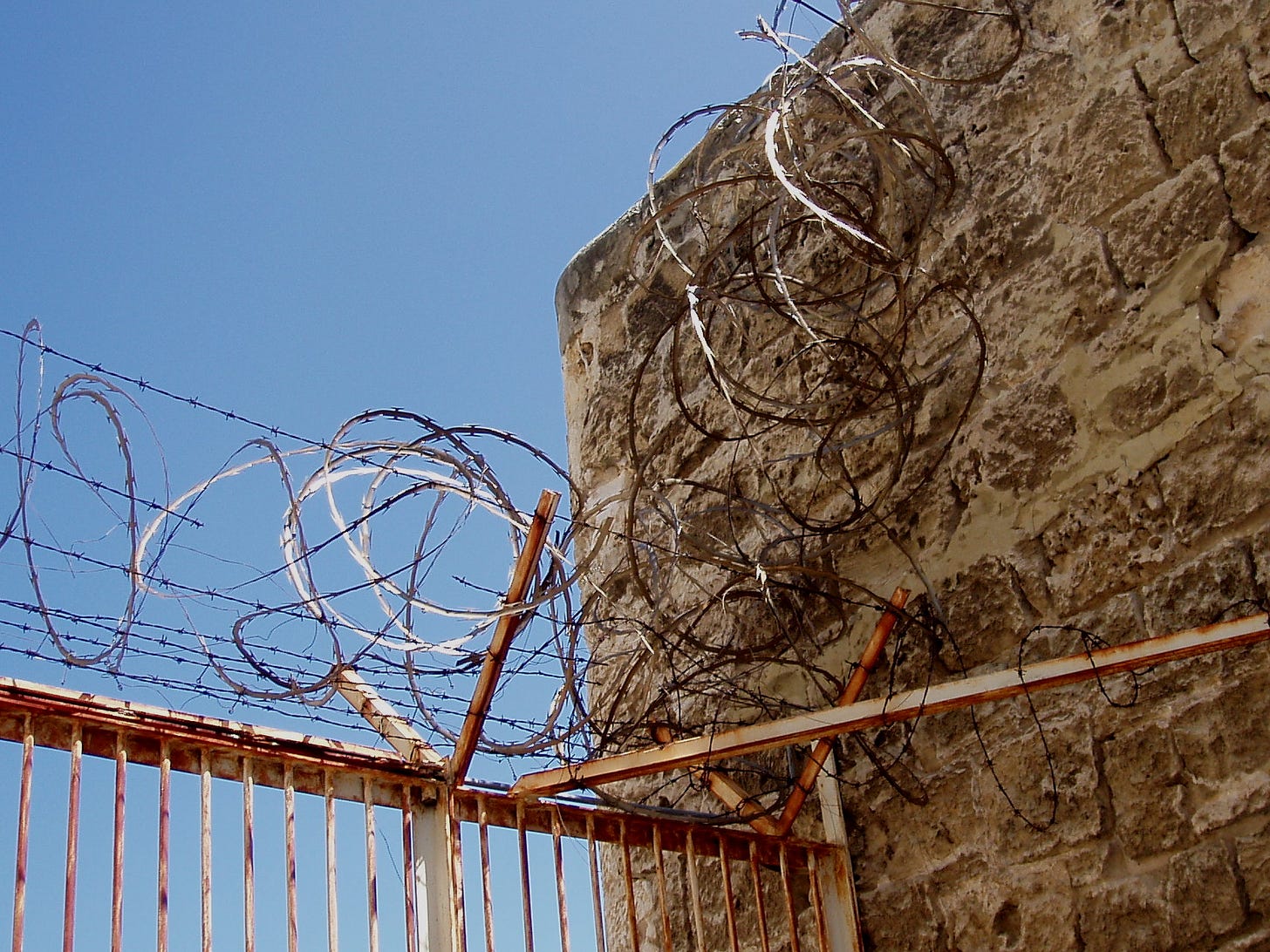The mental health crisis in Australian prisons
Ongoing restrictions, program cuts and a lack of family visits have exacerbated an existing mental health crisis in Australian prisons.
Strict Covid-19 restrictions have exacerbated the existing mental health crisis in Australian prisons, with people stuck in extended solitary confinement and without visits from family for more than a year.
There has been much said about the impact of the pandemic on the mental health of Australians, and rightly so. But little attention has been placed on the impact of it on people in prison, individuals who are already more likely to have a mental health condition.
While life has somewhat returned to normal in recent months for most Australians, there are still significant restrictions in prisons across Australia, with mandatory 14-day quarantine periods for new arrivals, akin to solitary confinement.
A number of family members of people incarcerated during the Covid pandemic tell me of significant difficulties in getting proper healthcare during this time, including with receiving necessary mental health medications that had been prescribed on the outside.
The scrapping of family visits for significant periods of time - many prisons are only just now reopening for visitations - also had a huge impact on people in prison, many of whom did not see their loved ones in person for more than a year.
Numerous programs, including drug rehabilitation ones, were also cut due to the pandemic, and quarantine and isolation measures saw people effectively in solitary confinement through no fault for weeks on end.
Straw that broke the camel’s back
For one mother of a man at Parklea prison in New South Wales, Covid-19 was the “straw that broke the camel’s back” when it comes to the mental health of people in prisons.
“He is one of many people who has struggled with not having contact with loved ones,” she tells me. “The technology and staffing was inadequate to support a move to online visits, and isolation of inmates made them unavailable for online connections.”
Another parent of a man at the same prison described the “appalling” treatment of people incarcerated there, with many of the Covid restrictions amounting to a “form of torture”.
This had a significant impact on his mental health, she says.
“The time my son endured at Parklea is a trauma he will live and relive for the rest of his life,” she tells me.
“This dehumanising experience has impacted massively on his already fragile mental health and he will need years of therapy to unpack and learn to manage the nightmare he and others experienced at Parklea.”
An issue we can no longer ignore
According to the Australian Institute of Health and Welfare, in 2018 40 per cent of people in Australian prisons had a pre-existing mental illness, and 25 per cent had a history of self-harm. More than a third of deaths in prisons in the last financial year were self-inflicted.
A number of Australian academics last year conducted a global review of guidance for managing the ongoing pandemic in prisons and detention settings, finding nearly 400 unique recommendations for doing so.
The academics called on state governments to grant the early release of people who don’t pose a risk to society, are medically vulnerable, awaiting sentencing or to protect them for undue mental health harm. New South Wales has the legislation in place to do this, but has not done so once.
There should also be access to fresh air for at least one hour per day for people in prison, and medical isolation should differ significantly from solitary confinement, they said.
Lindsay Pearce, a research fellow at the University of Melbourne’s Justice Health Unit, was the lead researcher on the project, and said that there is not nearly enough transparency around the operations of prisons in Australia to determine whether they have gotten the balance right between minimising the risk of Covid in prisons and protecting the mental health of those inside them.
“We don’t have enough information to answer that question, and that in and of itself is hugely problematic, particularly given the history of treatment of people in detention facility,” Pearce tells me.
In most Australian states, people entering a prison must complete a 14-day quarantine period virtually in solitary confinement. This is occurring at a usually traumatic and distressing point in someone’s life.
There have been significant restrictions on in-person visits to prisons across the last two years, and many family members have reported major issues with the tech substitutes that have been put in place.
Many programs for people in prison have also been put in hold due to the pandemic. There are typically 1300 participants in criminogenic programs in NSW prisons at any one time. During the pandemic, this number has dropped to 520 people, meaning nearly 1000 people in prison have missed out on these important programs.
The research report comes with a call for organisations and governments to work together to gather the necessary information to determine how well prisons have dealt with the pandemic and its associated mental health tolls.
“This is no longer an issue we can ignore,” Pearce says.
“Covid-19 has really put into perspective the state of prisons in terms of public health and individual health. We can’t ignore that and Covid is a really good example of why that matters for everyone.
“The Covid-19 crisis exposed the existing crisis in prisons globally.”


Nicely written article and great to see voices of people with lived experience integrated, which we need more of! The University of Melbourne article (published 22 March 2022) is available here, with a link to the published global review: https://pursuit.unimelb.edu.au/articles/people-in-prison-still-in-covid-19-lockdown.
Great newsletter, thank you. Since starting the Freadom Inside project I've been shocked to see how little coverage these issues get. People in correctional facilities have been treated so terribly during this time and there's just no visibility. https://www.gleebooks.com.au/freadom-inside/